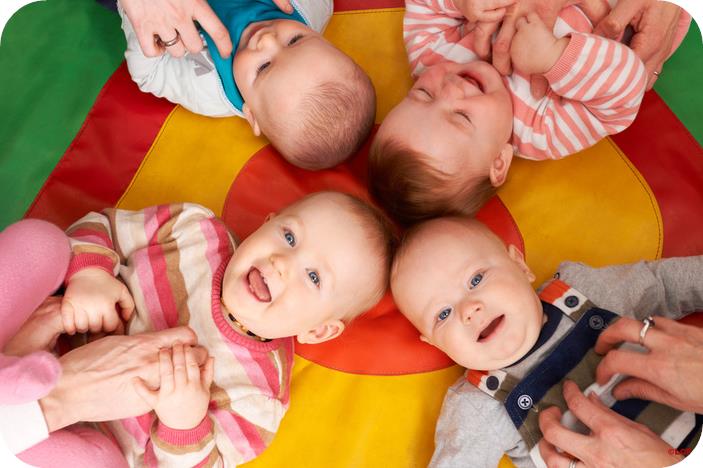-
Language learning is dependent upon the processing of sounds.Every human language contains about 40 different phonemes (language sounds). At birth, infant brains contain the unique capacity to recognize every phoneme from every language. Before they have even left the womb, babies’ brains begin to process and categorize the sounds of their parent’s voice.
Studies done on infants have shown that they are born not only able to recognize the difference between their mother’s language and another language, but with the ability to differentiate between other languages as well.
However, between 6 and 12 months of age, infants who live in monolingual households begin to specialize in the phonemes of their native language. By their first birthdays, babies begin to lose the ability to hear the differences between foreign phonemes.
The optimal window for language acquisition appears to be from birth to around age 5, when the majority of neural connections in the brain are still “plastic.” During this time, there is hypothetically no limit to the number of languages a child can acquire (although for practical purposes, it has been suggested that more than four is probably an unrealistic expectation for a toddler).
If language acquisition starts early enough, children can, in effect, have more than one “first” language. That increases the probability they will be able to speak fluently and without an accent in multiple tongues. Not only can very young children excel in multiple languages at once, but they excel at code-switching, a phrase which refers to the mixing of languages and speech patterns in conversation. After age 7, code-switching becomes more difficult, as does speaking in a non-native language sans accent.
Language has the power to shape the worldview and identity of its users. Children who are proficient in more than one language have been shown to be adept at navigating a diverse range of social and cultural settings. In addition, being multilingual has many cognitive benefits; studies have shown that adolescent polyglots have longer attention spans, are better at multitasking, and can reason abstractly with more ease than their monolingual peers. As they grow older, being multilingual helps children excel in school, opens an opportunity for foreign travel, and makes them valuable employees for a vast range of careers.
In an increasingly global and multicultural world, knowing multiple languages is an invaluable skill. The moral of the story: If you can, start introducing your child to languages as soon as possible. If you can, speak multiple languages at home or send them to an immersive day care. Trust me, they will thank you for it later.
Leah Folpe is a senior at Mayo High School. To respond to an opinion column, send an email to life@postbulletin.com.
Copy: http://www.postbulletin.com/life/lifestyles/leah-folpe-the-earlier-the-better-for-learning-languages/article_0039db0b-26d1-5021-91cf-048199f2695a.html

